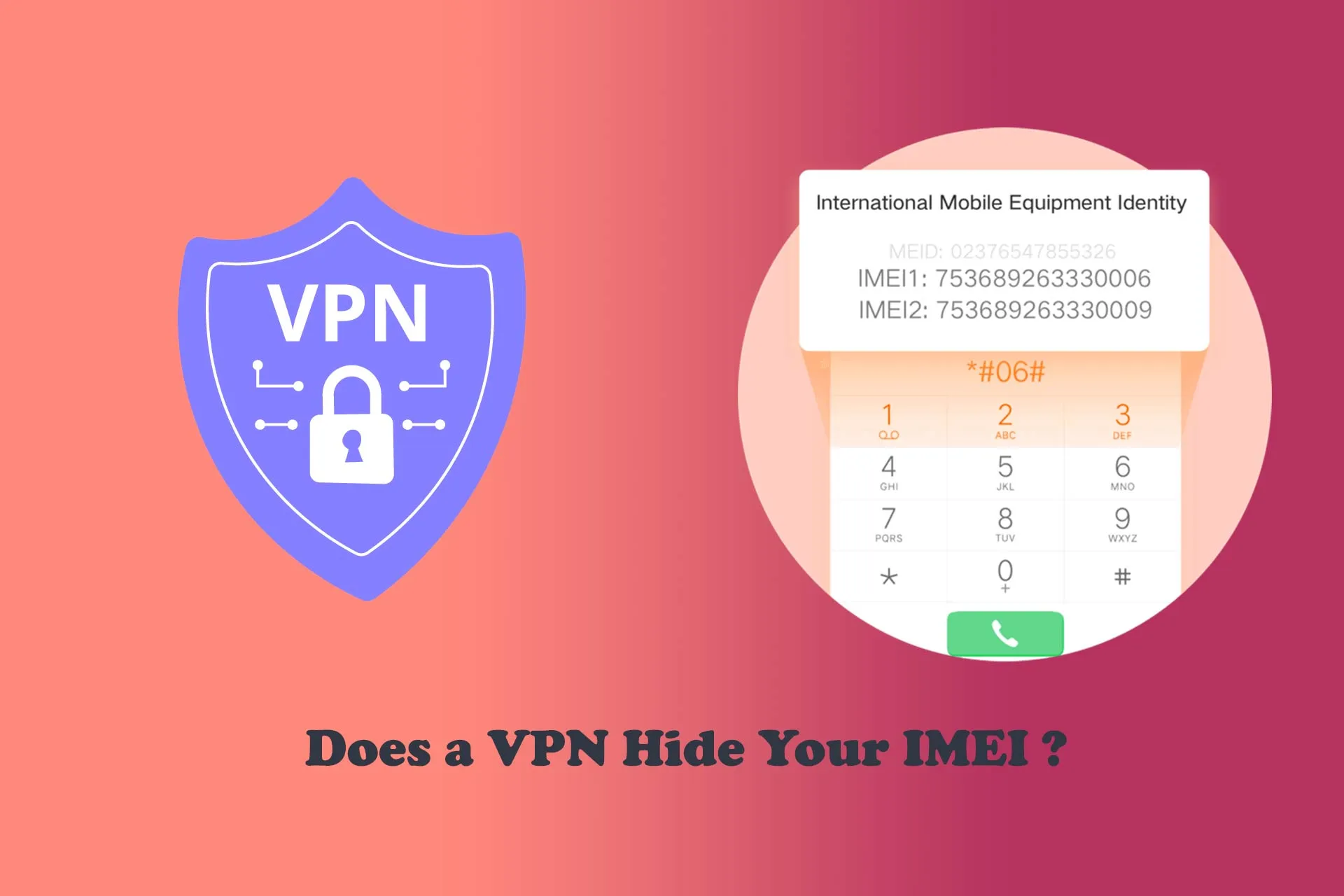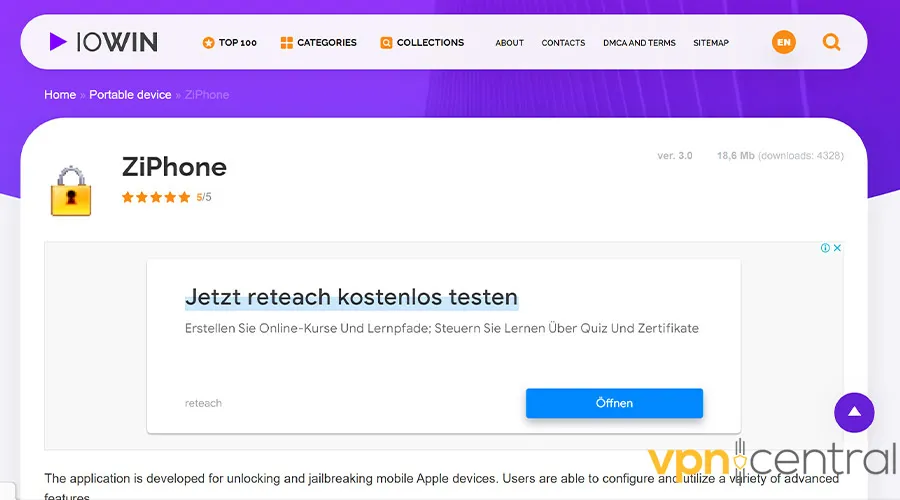Does a VPN Hide Your IMEI? How to Spoof Your IMEI?
5 min. read
Updated on
Read our disclosure page to find out how can you help VPNCentral sustain the editorial team Read more

Although the internet has immensely impacted everything, it can be harmful if you’re not careful enough.
Phishing, malware, viruses, and ransomware, for instance, lead to data exposure, software corruption, and network collapses.
So, you must employ utmost security measures like antivirus software and VPN services to keep your device and network safe and sound.
But is that enough? How about your device’s IMEI number? Can a reputable Virtual Private Network provider actually hide it from spoofers?
this article goes into detail and discusses IMEI-related threats and whether a solid VPN provider can resolve them.
Does a VPN Hide Your IMEI?
No, a VPN does not hide your IMEI. While a VPN provides multiple security layers to your network, it has nothing to do with your phone’s IMEI.
A trustworthy Virtual Private Network service encrypts your network traffic, hides your internet activity, and provides digital anonymity.
Meanwhile, your IMEI number is merely an ID designated to your device’s cellular radio chip (or chips) and has nothing to do with the Internet.
As a result, VPNs and IMEI numbers relate to two distinct areas of a mobile device and can’t impact one another.
Can IMEI be tracked when VPN is on?
Yes, IMEI can be tracked when VPN is on. As previously mentioned, this tool cannot provide any security layers to protect your IMEI.
That is because VPNs affect how your device connects to the internet and don’t impact your cellular transmissions.
So, hackers can track your IMEI number, whether you’re connected to a virtual private server or not.
But that doesn’t mean these services are useless. Always opt for a reputable VPN provider to access the best security measures and surf the web safely.
Can I get an IP address from IMEI?
No, you cannot get anyone’s IP address using their IMEI number, as it contains no information about the device’s owner or location.
However, you can expose someone’s IP address if you can directly access the device itself or connect to its network.
For instance, you can find a device’s IP address by running the ipconfig command on Windows or ifconfig on Linux/macOS.
So, your IMEI number is an ID designated to your device by its manufacturer, it cannot help anyone locate your IP address.
Can you spoof an IMEI number?
Yes, you can spoof an IMEI number on a device, but it requires some level of expertise.
Additionally, changing this number can help your device become untraceable, making it more challenging for someone to track it.
Caution: Changing your IMEI number is illegal in many countries, and we only disclose it for informational purposes. Check your country’s regulations to make sure you don’t break any laws.
Here’s how to change your IMEI on your iPhone:
- Download the Ziphone tool on your computer and install it.

- Turn off your device, press the Volume Up button, hit the Volume Down button, hold the Side button until the device boots in Recovery Mode, and connect the iPhone to your PC.

- Right-click on the Start Menu, and choose Windows Terminal (Admin).
- Type the following command line and press Enter:
ziphone
- Then execute the following command but don’t forget to replace [NEWIMEI] with a new 15-digit IMEI number:ziphone -u -i a[NEWIMEI]

You can check your IMEI number by dialing *06#.
Does a VPN hide your device details?
No, a VPN cannot hide your device details as they go to your operator through your IMEI number.
However, a Virtual Private Network is a powerful security tool with many features. Below you can find everything a VPN helps protect.
1. IP address
A VPN service routes all your network traffic through an encrypted, private server and assigns you a new IP address.
That way, no one, not even your internet service provider (ISP), can see what you do online.
2. Geo-location
By using a reputable VPN provider, you gain access to thousands of servers worldwide.
So, when you connect to a server from a different country, your VPN conceals your actual location, providing complete anonymity.
3. Search history
As mentioned earlier, your VPN encrypts your internet traffic, making it impossible for anyone to figure out what you do online.
Remember that your browser keeps tabs on your online activity even with a VPN. So, consider wiping your browser data every now and then.
4. Personal data
A reputable VPN service can conveniently protect sensitive data like your login information, credit card details, and email conversations.
However, it can’t stop you from deliberately exposing your information online. So stay away from shady websites to ensure cybersecurity.
In addition to everything a VPN hides, there are times when it fails to protect your information. Read about things a VPN can’t hide below:
- Account activity: Although a VPN disguises your IP address, it can’t stop platforms from seeing your account activity when logging in.
So, be careful about what you do on social channels and avoid sharing too much personal information online.
- Viruses and Infections: A VPN provides anonymity and helps you mask your digital identity but doesn’t offer immunity against malware.
Therefore, always opt for premium antivirus software alongside a VPN to ensure complete cybersecurity and anonymity.
Summary
VPN services offer a wide range of security features and provide users with digital anonymity to experience safe internet access.
But does a VPN hide your IMEI number? The answer is no. Despite everything a VPN masks, it cannot hide your IMEI number.
That is because your VPN and IMEI number behave in separate environments and have no impact on one another.
Finally, consider contacting your cellular operator if you think someone’s hacked your IMEI before facing further complications.







User forum
0 messages